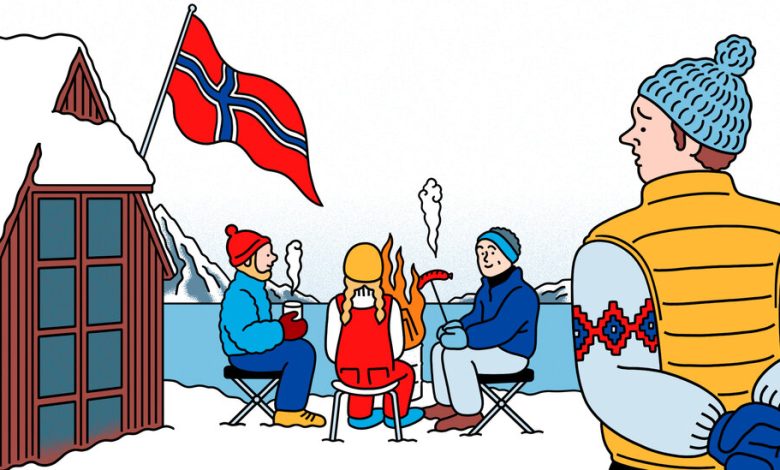Ancestry Tests Produced Shocking Results. Should I Tell My Family?

My cousin recently told me that he would never sign up on the 23andMe or Ancestry sites because “that’s how suckers find out they’re adopted.” Maybe I should have listened to him. Last June, my stepfather and I visited Norway to meet paternal relatives I’ve heard about and spoken with but never met. It was the most amazing trip I’ve taken in my life. These relatives were so kind and loving — we hit it off like we’d known one another forever. They showed me where my great-grandfather grew up and detailed my family history all over the country.
During the trip, I made plans to return. I also started taking Norwegian lessons. But when I did analyses from both 23andMe and Ancestry, my ancestry composition didn’t align with what I expected. It turned out that my paternal aunt is actually my half aunt; my dad’s dad likely isn’t my biological grandpa, and I’m likely not related to my family in Norway after all.
Now I’m feeling some impostor syndrome. It feels dishonest to go back next year and not divulge my findings. What are my ethical obligations to a family I might not be related to at all?
On the one hand, a significant part of me feels I should reveal this information. I’ve asked several members of my close family, and they all disagree. They’re of the opinion that I was raised in this family, I’m a part of this family, and that nothing good will come from me disclosing this news. I can’t shake the feeling that I have an obligation to tell them the truth if I do the trip next year. What do you think? — Name Withheld
From the Ethicist:
That “significant part” of you has it right. This information is obviously relevant to your relationship with these people, and it would indeed be a betrayal of trust not to share it. You may have some sorting through to do yourself. You’ve found that your paternal grandmother evidently didn’t conceive your father with the man you thought was your biological grandfather. (A result of an extramarital affair? Maybe. Or maybe the child of a previous relationship, or of an adoption that wasn’t widely shared in the family, or even of a donor-assisted conception.) So people you’re connected to through just your paternal grandfather — are there any on this side of the Atlantic? — probably aren’t blood relations. I do hope that you and the Norwegians continue to get to know each other, even if your node of connection isn’t biological. Still, feelings about these things are complicated. The main thing is to proceed with honesty — and own up to the fact that, to the best of your knowledge, no significant part of you is Norwegian.
We are having trouble retrieving the article content.
Please enable JavaScript in your browser settings.
Thank you for your patience while we verify access. If you are in Reader mode please exit and log into your Times account, or subscribe for all of The Times.
Thank you for your patience while we verify access.
Already a subscriber? Log in.
Want all of The Times? Subscribe.